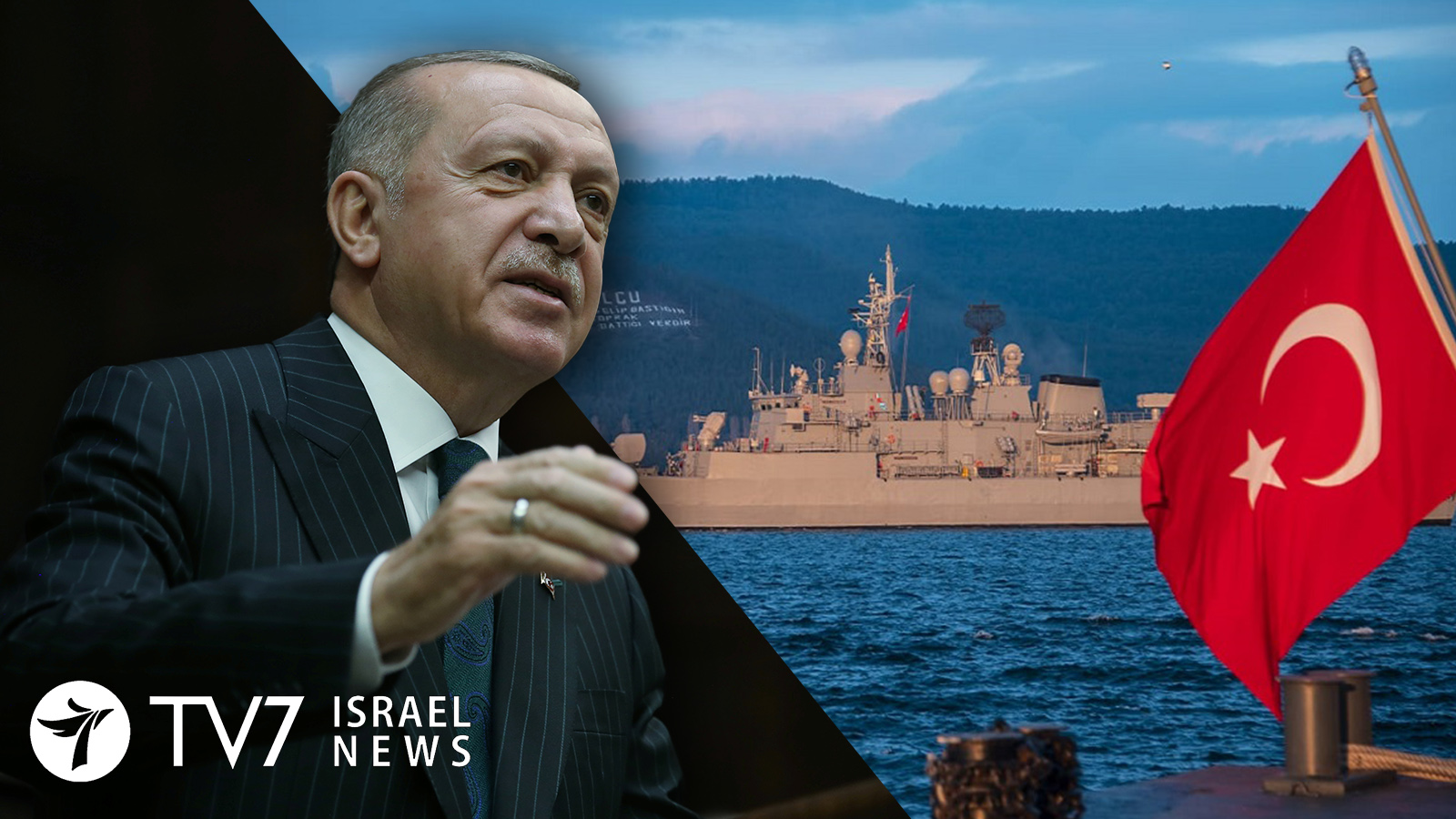French President Emmanuel Macron stressed that the European Union devised a unified approach to ensure sovereignty of EU member states Greece and Cyprus is respected in light of Turkey’s aggressive behavior in the Eastern Mediterranean.
The EU will draw up a list of new sanctions on Turkey at the end of September unless Ankara comes to the negotiating table to resolve its territorial dispute with Athens and Nicosia, the EU’s Mediterranean states announced. Leaders from the “EU Med” or “Med7) nations of France, Cyrprus, Greece, Italy, Malta, Portugal and Spain made the declaration following a summit in Corsica.
“We have defined, as we have done in the summer with the German Chancellor, a common agenda to have European sovereignty respected, as well as international law, and favor de-escalation,” said Macron, while standing alongside the leaders of Greece, Cyprus and Italy, underscoring, “I could first say that without ambiguity, we have expressed a message of support for Greece and Cyprus, a message of solidarity, of support in the face of unilateral provocations, of illegal drilling, in moves that threaten European sovereignty.”
Greek Prime Minister Kyriakos Mitsotakis then stated that, “before September 24 – the EU summit – we want to not be divided and not to fall into the trap of division that Turkey wants to bring us into. I think that the solidarity for Greece and Turkey is nothing but a recognition that this is really about a European challenge.”
Cypriot President Nikos Anastasiadis reiterated that, “We are convinced that this action of Ankara violates international law, sovereign law and the sovereignty of two member states of the European Union. But it also violates European sovereignty itself. We agree to use all means available to the European Union to face this unlawful actions and behaviors by Turkey, going up to sanctions against all those who are involved in this unlawful and illegal behaviors.”
Meanwhile in Cyprus, U.S. Secretary of State Mike Pompeo held a series of meetings with the Cypriot leadership in the port city of Larnaca. “We remain deeply concerned by Turkey’s ongoing operations, surveying for natural resources in areas over which Greece and Cyprus assert jurisdiction in the eastern Mediterranean,” said the top U.S. diplomat, adding that “the Republic of Cyprus has the right to exploit its natural resources, including the right to its hydrocarbons found in its territorial sea and its exclusive economic zone. We also believe that the resources of Cyprus should be shared equitably between the Greek Cypriot and Turkish Cypriot communities.”
Pompeo’s visit comes at a time when the Turkish armed forces conducted a military drill in the northern part of Cyprus, which is under Ankara’s control. While overseeing the exercise, Turkish Defense Minister Hulusi Akar insisted that while Turkey is adamant on finding a political solution to tensions in the Eastern Mediterranean it must protect its own interests.
“We are on the side of peace, dialogue and political solution. We want good neighborly relations. We are respectful of agreements and of everyone’s borders. We do not have an eye on anyone’s land,” said the Turkish Defense Minister, before going on to say, “but we are fully determined, decisive and capable of protecting our country’s and our nation’s rights and interests until the day we die.”
Turkey’s Oruc Reis seismic research vessel withdrew from a disputed area in the Eastern Mediterranean yesterday, in what had been hailed by Greece as a first positive step toward easing strained tensions. Ankara’s leadership was nevertheless swift to minimize significance of the move, however; by insisting the ship had return to Turkey’s shores as part of scheduled plans.
